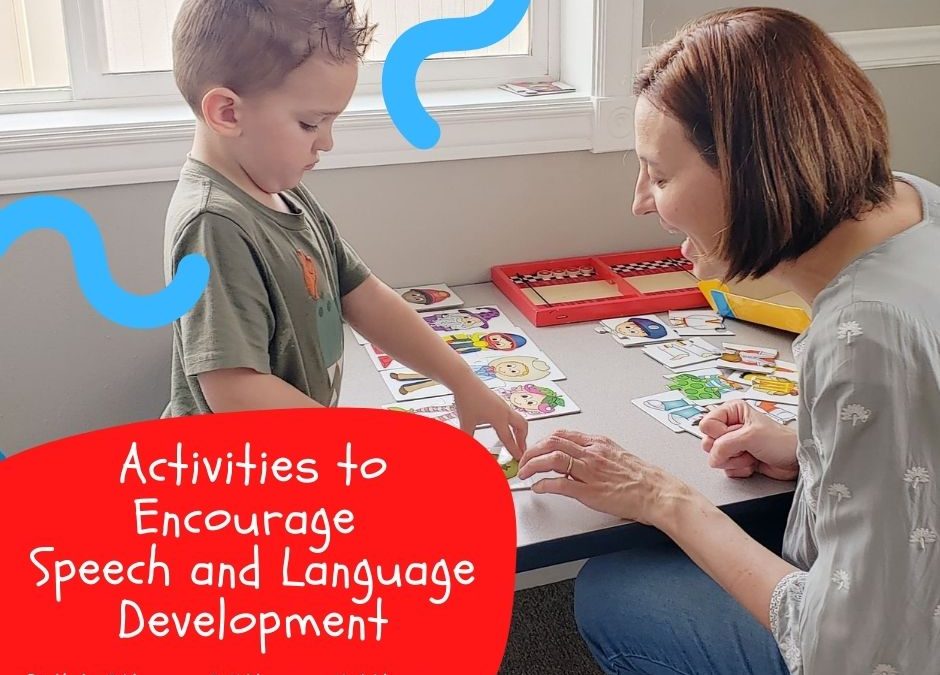Birth-Age 2
- Look at your baby when he makes sounds. Talk back to him, and say what he says. Pretend to have a conversation.
- Talk to your baby as you give him a bath, feed him, and get him dressed. Talk about what you are doing and where you are going. Tell him who or what you will see.
- Use gestures, like waving and pointing.
- Add on to what your baby says. When your baby says, “Mama,” say, “Here is Mama. Mama loves you. Where is baby? Here is baby.”
- Read to your child. You don’t have to read every word, but talk about the pictures. Choose books that are sturdy and have large colorful pictures. Ask your child, “What’s this?” and try to get him to point to or name objects.
Age 2-4
- Speak clearly to your child and model good speech.
- Repeat what your child says to show that you understand. Add on to what she says. Use words like, “Want juice? I have juice. I have apple juice. Do you want apple juice?”
- Ask questions that include a choice. “Do you want an apple or an orange?” “Do you want to wear your red shirt or your blue shirt?”
- Sing simple songs, and say nursery rhymes. This helps your child learn the rhythm of speech.
- Show pictures of familiar people and places. Talk about who they are and what happened. Try making up new stories.
Age 4-6
- Pay attention when your child talks to you. Get your child’s attention before you talk.
- Keep helping your child learn new words. Say a new word, and tell him what it means, or use it in a way that helps him understand. For example, you can use the word “vehicle” instead of “car.” You can say, “I think I will drive the vehicle to the store. I am too tired to walk.”
- Talk about where things are, using words like “first,” “middle,” and “last” or “right” and “left.” Talk about opposites like “up” and “down” or “on” and “off.”
- Have your child guess what you describe. Say, “We use it to sweep the floor,” and have her find the broom. Say, “It is cold, sweet, and good for dessert. I like strawberry” so she can guess “ice cream.”
- Play games with your child such as “house.” Let her be the parent, and you pretend to be the child. Talk about the different rooms and furniture in the house.
- Watch movies together on TV or a tablet. Talk about what your child is watching. Have her guess what might happen next. Talk about the characters. Are they happy or sad? Ask her to tell you what happened in the story.
Activities selected by RSI SLP Karen Thomas, additional suggestions can be found HERE.

